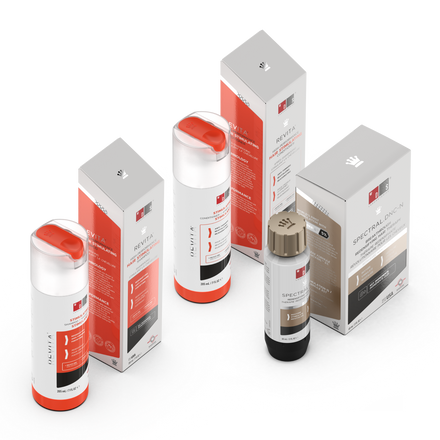Correcting hair loss from a B12 deficiency requires that you treat the deficiency. At the same time, you must also take measures to support hair regrowth.
Increasing your food intake of B12
People who are borderline or diagnosed with a true deficiency can try to increase their levels naturally by eating more foods with this vitamin. To boost your intake, try eating any of the following products regularly:
- Beef liver (great source)
- Clams (also a wonderful source)
- Fish
- Most meat (poultry, beef, and pork)
- Eggs
- Milk
- Yogurt
- Cottage cheese
- Fortified foods like breakfast cereal and nutritional yeasts.
If you are not a meat or dairy eater, look at the product labels of the foods you are interested in to see the if the manufacturer fortified it with B12.
Supplements
Most multivitamins contain B12, but it is also available in its own supplements or in combination with other nutrients like folic acid.
Sublingual tablets
There are sublingual (or under-the-tongue) forms of vitamin B12 that absorb in your mouth. These are a good option for people who cannot swallow well or who do not like to swallow pills. There is no current evidence that suggests the sublingual form is superior to the pill form of this nutrient.
B12 Injections
If your doctor diagnoses you with a B12 deficiency, you may need to increase your B12 levels through a different route than your digestive tract. You can do this by having an injection of B12.
People who require the injection often need to receive it regularly to keep their levels normal. Therefore, some people may learn how to give themselves injections on a set schedule. However, most people go to their doctor's office for a quick dose every few weeks.
B12 nasal gel
Your doctor may give you a prescription for a nasal spray that delivers B12 to your nasal mucosa for absorption into your bloodstream. Like the injection, this is also a way to boost B12 levels for people who cannot absorb it through their digestive system.
Measures to support hair regrowth
Aside from treating the deficiency, you need to take steps to help your hair re-grow.
- Start by taking care of the existing hair on your head with shampoo products that hydrate your scalp and hair. Some professional-grade shampoo products can also stimulate new hair growth simultaneously, so look for shampoos and conditioners that contain ingredients like ketoconazole, caffeine, biotin, and MSM.
- Treat any underlying scalp conditions, such as a dry scalp, dandruff, seborrheic dermatitis, and Malassezia, as these can hinder natural hair regrowth.
- Use a hair regrowth product that stimulates the scalp by decreasing inflammation, opening ion channels, and prolonging the growth stage of each hair follicle. Products that contain Nanoxidil 5% are superior in re-growing your hair.
- Along with your B12 supplement, take a supplement that supports your hair, such as the Revita Nutraceutical Tablets. The Revita tablets include all of the essential nutrients you need for hair growth, including zinc, biotin, keratin, and iron.
- Avoid any harsh hair treatments and styles that may cause inflammation on your scalp or damage new and existing hair follicles. For example, you should try to limit or avoid hair dyes, tight hair styles, and hot styling tools.










